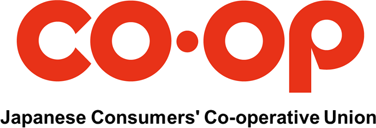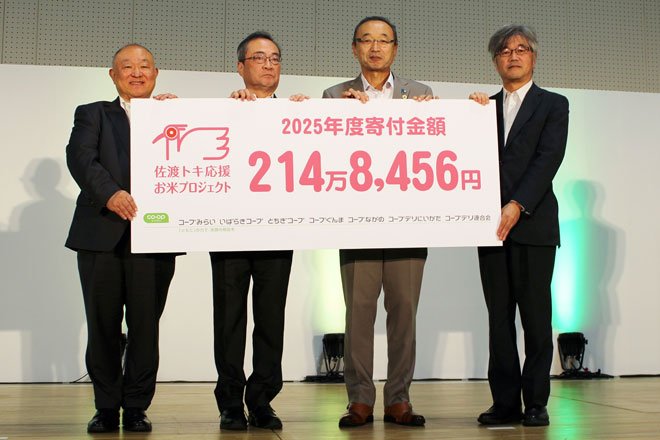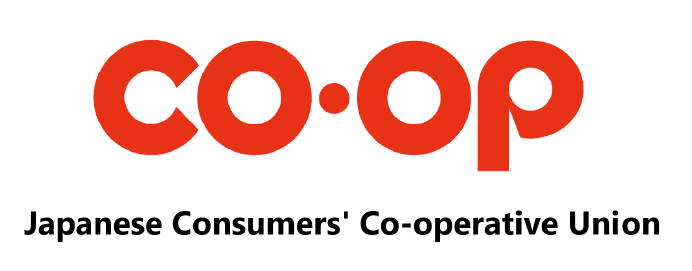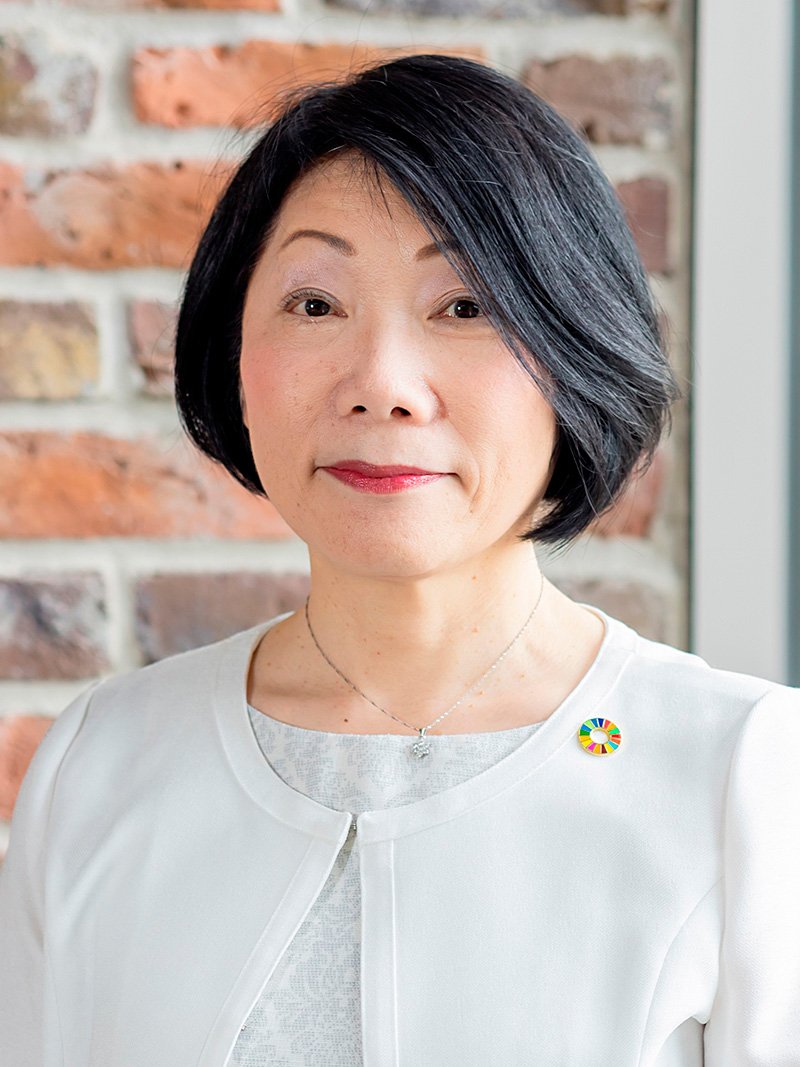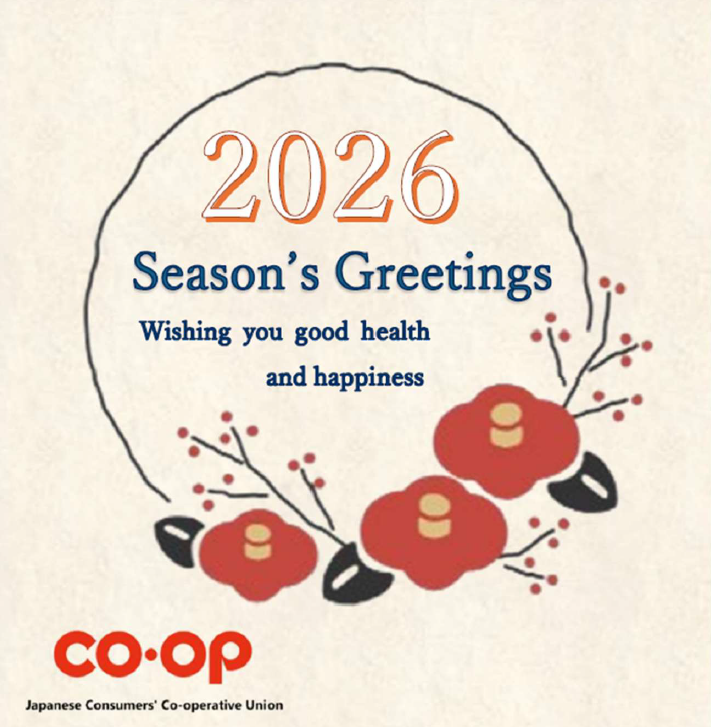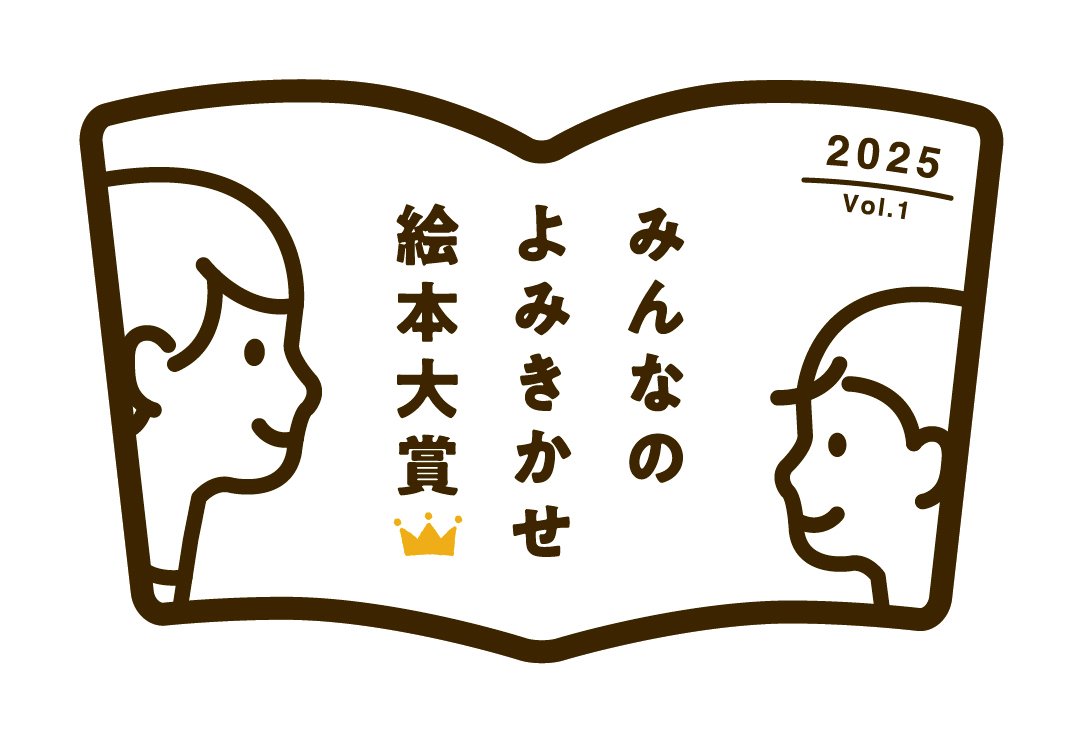The ICA-AP Consumer Cooperative 2021 Webinar 'Sustainability' held on September 16th, 2021
2021.10.07
The ICA Committee on Consumer Cooperation for Asia and the Pacific (ICA-AP Consumer Committee) organized the ICA-AP Consumer Cooperative 2021 Webinar on "Sustainability" in collaboration with Japanese Consumers' Co-operative Union (JCCU) on 16th September 2021. The webinar was a great success with the participation of 120 co-operators from 17 countries in the Asia-Pacific region.
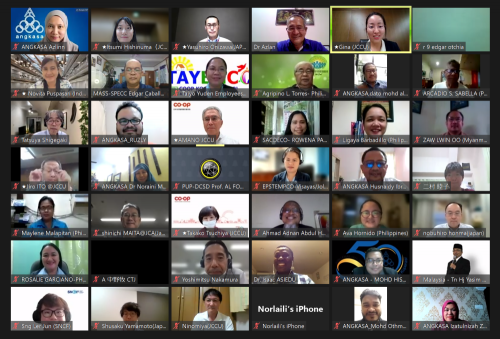 【the Goals of the webinar】
【the Goals of the webinar】 This is the third webinar organized by the ICA-AP Consumer Committee in 2021, following the first webinar held on 2nd June 2021 under the theme of "Contribution to local communities" and the second on 25th August 2021 focusing on the New Generation Stores "C&S Co-op Supermart" in the Philippines.
The objectives of this webinar were to deepen the understanding of the businesses and activities of consumer co-ops (or co-ops in the retail sectors) in order to improve sustainability, to boost inter-cooperation of co-operatives around the world, and to think about Co-operative Identities toward the 33rd World Cooperative Congress in Soul.
【the Report on the webinar】
1. Opening remarks:
The webinar started with the opening remarks from Mr. Haruyoshi AMANO, the Chair of the ICA-AP Consumer Committee & the Manager of the International Department of JCCU, followed by a 4mins video message from Mr. Balasubramanian IYER, the Regional Director, ICA-AP.
2. Presentation from 3 speakers :
In the main session, three speakers from the co-operatives in the Asia-Pacific region gave reports to participants about the outline of their co-ops and sustainability activities.
The first speaker was Mr. Yasuhiro Onizawa, the Manager of Environment Promotion Dept. in Consumer Co-operative Kobe (Co-op Kobe), in Japan. He described the outline of CO-OP Kobe and Co-op Kobe's environmental activities such as its Environmental Challenge Goals, Food Recycling in its Eco Farm, Solar Sharing Initiative by generating solar energy, and its new store using 100% renewable energy.
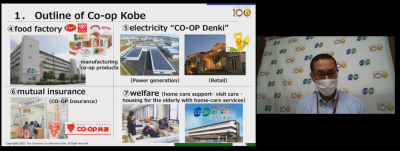
The second speaker was Dr. Mohd. Azlan Yahya, the Vice-President of ANGKASA in Malaysia and the Vice-chairperson of ICA-AP Consumer Committee. He explained about the Cooperative Movement and Consumer Cooperatives in Malaysia, described ANGKASA and its three sustainable intervention programs: BA100 Program, 100 Champion Product Development, and its Cooperatives' Products Resource Centre (CPRC).
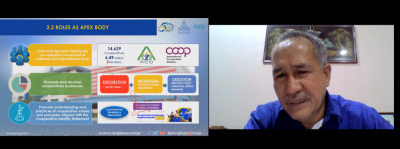
The third speaker was Ms. Novita Puspasari, a scholar-activist of Cooperative and SMEs and also the Researcher of Kopkun Institute in Indonesia. She gave explanations of consumer co-ops in Indonesia, how Kopkun Co-op is managing its stores under the Covid-19 crisis and what kind of supports Kopkun Institute provides to Kopkun Co-op and its members such as quality education and innovations.
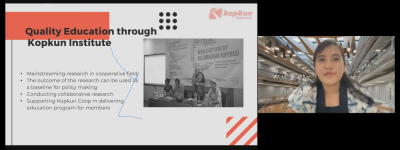
3. Discussion session
After the three speakers' presentations, a discussion session was taken place where each speaker answered questions related to their reports and the theme "sustainability." The first question was given to Mr. Onizawa, Japan, about how far Co-op Kobe has achieved the goal of reducing the emission of CO2 under its Environmental Challenge Goals. The second question was to Dr. Azlan, Malaysia whether ANGKASA put the CO-OP logo on its 100 Champion products' packages and what kind of environmentally sustainable activities ANGKASA is conducting. The last question was to Ms. Pusupasari, Indonesia whether Kopkun Co-op provides its products to even to people with low income and living in remote areas.
4. Questions and Answers session
In the questions and answers session, participants of the webinar asked several questions or gave comments to the speakers. The first question was given to Mr.Onizawa is there any actions Co-op Kobe is taking to inspire young people to be involved in agriculture because Mr.Onizawa mentioned that the average age of Japanese farmers has been getting older and is now 67 years old. The other questions were to Dr. Azlan, what is the difference between Adult Co-op and School Co-op, and whether ANGKASA is engaged in sustainable palm oil activities. Ms.Puspasari was asked how many stores Kopkun is trying to establish in a new few years and if Kopkun Institute provides IT education such as programming classes to students or its members. These kinds of many interesting questions were asked by participants from many different countries and they shared knowledge and ideas with each other.
5. Closing
All participants were very impressed with the sustainable activities conducted by three co-operatives reported today, and they could strengthen the cooperative relationships by exchanging with each other.
Even amid the Covid-19 pandemic and there are restrictions to visit each country, we could communicate using an online platform, which even enables more people to join the meeting regardless of distances. We hope to hold this kind of meeting and events which facilitate cooperative relationships and promote cooperative movement around the world.
